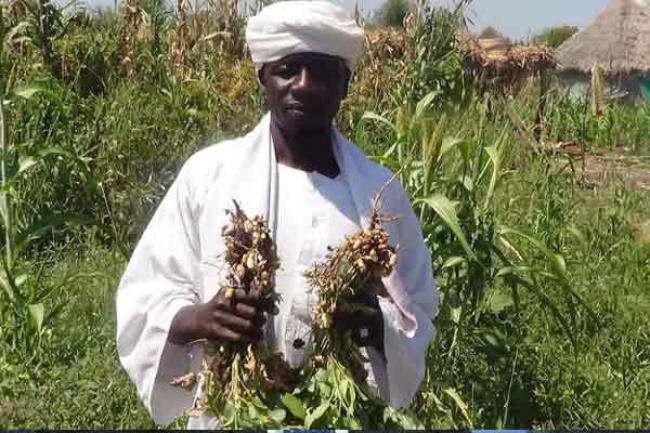Just Earth News 30 Aug 2016

OCHA
While the two agencies, both headquartered in Italy, have been promoting food security in the African country for decades, this is the first time that they have signed a memorandum of understanding to formalize their partnership there.
“We fully expect that this collaboration will strengthen our ongoing efforts to promote resilience and self-reliance among the vulnerable communities that we support,” the Head of Programme for WFP’s Sudan operation, Marco Cavalcante, said in a joint press release.
“IFAD Country Office is pleased to sign this agreement with WFP on Monday, which is an excellent example of extended collaboration between the Rome-based agencies here in Sudan,” said an IFAD Country Programme Officer, Ahmed Subahi.
According to the WFP website, Sudan remains a least-developed and a low-income food-deficit country. In the UN Development Programme’s 2013 Human Development Index, Sudan ranked 166th out of 187 countries on the index and as the fifth most food-insecure country according to the 2013 Global Hunger Index. The country remains one of WFP’s most complex humanitarian emergencies characterized by recurrent conflict, new and protracted displacement, regional insecurity, crisis levels malnutrition and food insecurity, chronic poverty and a deteriorating economy.
Under the agreement, IFAD and WFP will work to enhance smallholder farmers’ access to agricultural resources, including improved seeds and training on agricultural credit and methods to reduce post-harvest losses. The agencies will also work to improve the availability of market services for produce.
The agreement will also enable the two agencies to strengthen cooperation on analysis of climate impact on agricultural activities to help communities adapt to changing climate patterns.
In 2010, WFP implemented its innovative Farmers to Market (F2M) Programme to assist smallholder farmers as part of its efforts to promote food security and build resilience among vulnerable communities.
Through this programme, WFP partnered with the Federal Ministry of Agriculture and the Central Bank of Sudan to enable smallholder farmers to access markets for training, insurance, and credit.
According to the joint release, WFP is currently assisting 45,000 smallholder farmers across Sudan to improve production and become self-sufficient, seeking to expand the F2M programme to reach more than 80,000 smallholder farmers by next year.
For its part, the joint release noted, IFAD has invested $257 million to finance 20 programmes and projects since inception of its activities in Sudan in 1979. By the end of 2015, IFAD had been implementing eight projects that stretched over 11 states in 50 localities, encompassing areas with a high concentration of the rural poor. Currently, IFAD projects extend to 731 communities and more than 400,000 direct beneficiaries.